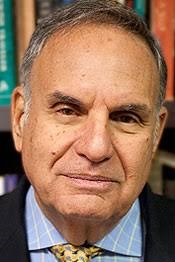 Rabbi Ira Youdovin: What Can be Expected from the New Israeli Government?
Rabbi Ira Youdovin: What Can be Expected from the New Israeli Government?
Folks are asking how long will the new Israeli government hold together, and what might it accomplish? My answer to both questions is the same: I don’t know. And anybody claiming to know is fooling himself and/or trying to fool you.
On the one hand, prospects for its survival are dim. Composed of eight parties with a staggering diversity of views, many of them conflicting, it’s difficult to identify significant issues on which all will concur. But the parties understand this and agreed that each of them, including the Palestinian Ra’am, will have the power to veto legislation before it’s introduced for Knesset discussion and vote, thus avoiding the danger of losing a vote of confidence that would force yet another national election. They were willing to take this unusual step for the specific purpose of forming a coalition with the votes to end Prime Minister Netanyahu’s twelve-year tenue, the longest in Israel’s history.
But Bibi isn’t fading away. He’s leading the opposition while awaiting a court’s ruling on the three felony counts on which he’s been indicted. This could take months, even years. But it’s well within the realm of possibility that the parties will maintain discipline until then, rather than risking another election which Netanyahu, emboldened by his rivals’ inability to form a stable government, is virtually certain to win.
The new government might be stable, at least in the near term and possibly even longer. But what can it accomplish when any of its eight member parties can block proposed legislation before it reaches the Knesset floor? Well…some things are possible.
Without (ultra-Orthodox) Haredi parties in the coalition, it should be possible to take a few steps forward in the on-going struggle for Jewish pluralism. For example, a plan for facilitating women’s and mixed-gender worship services at the Kotel (Western Wall) should (at long last) be implemented. It was approved by the Cabinet in 2017 after a heroic effort led by Natan Sharansky, but withdrawn at the last minute when the Haredim threatened to bring down the government. It’s been sitting in limbo ever since, angering Reform, Conservative and Reconstructionist Jews throughout the world.
But while the Haredi parties are gone, Haredim are not. Prime Minister Bennett’s Yamina Party is right-wing Orthodox. (Bennett is Israel’s first prime minister to wear a kippah in his daily life). So it’s highly unlikely that the Knesset will vote to allow civil marriage and marriages conducted under non-Orthodox auspices in Israel to be entered into the population registry.
There could be a dramatic, and long overdue, enhancement in the quality of life for Palestinian citizens of Israel (those living inside the Green Line). The Palestinian Ra’am party ran the same kind of election campaign waged by politicians throughout the world, promising to deliver new opportunities for its constituents’ advancement in Israeli society, cleaner streets, fewer potholes, better schools, more effective policing against crime in their neighborhoods, and a greatly increased budget for infrastructure. Because Ra’am’s four seats gave the coalition a slim Knesset majority, the new government’s platform calls for huge expenditures in these areas.
On the other hand, it’s likely that the standoff over the future of the Occupied Territories and their inhabitants will continue. The three hard right parties in the coalition—Yamina, Yisrael Beiteinu and New Hope—are committed to expanding settlements and moving toward annexing at least a substantial portion of the West Bank. But they are blocked by the leftist Labor and Meretz parties, as well as Ra’am and, to some extent, the centrist Yesh Atid and Blue/White who seek to end the Occupation and move toward a two-state solution.
But there may be subtle, yet significant, changes in the nature of the Occupation. Although there is no Israeli consensus for ending it—with opposition rooted in ideological aspirations as well as fears of repeating what happened in Gaza in 2005 when Israel withdrew and Hamas terrorists surged in—-Israelis are asking themselves if it needs to be enforced with brutality bolstered by a two-tier system of justice that evokes allegations of apartheid both inside Israel and abroad.
The Israel-American philosopher and social scientist Micah Goodman calls this “shrinking the conflict”. Are punitive house demolitions necessary? Late night “knocks on the door”? Hundreds of checkpoints? If settler hoodlums burn Palestinian olive groves shouldn’t they be subject to the same measure of justice that would apply if the perpetrators were Palestinians? How much of this is essential to Israel’s security? And how much is intended to harass the Palestinians to the point where they will leave?
I believe—and here I move from analysis to hope and prayer—that the very existence of this unlikely coalition, cobbled from disparate parts willing to compromise in order to pursue a shared goal, may effect change in the nature of Israeli political discourse and thinking, softening its toxic nature and moving people to raise their sights beyond the tumultuous here and now to fix their vision on creating a better future for all who need to find of way of sharing their troubled, but sacred land.
The new government may fall tomorrow. Or maybe not. But its every existence, however brief it may be, shows that the heretofore impossible in time becomes possible.
Rabbi Ira Youdovin
6/16/2021